- Strona główna
- News
- Report from the 2nd Twinning of Lawyers
Report from the 2nd Twinning of Lawyers
September 12, 2020 10.00 (CET)
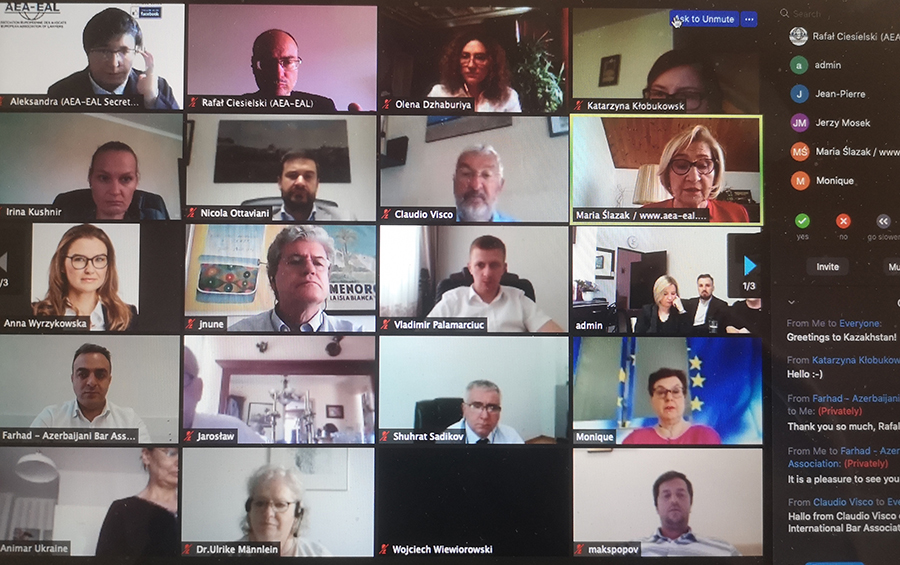
For the second time representatives of Bar Associations and individual lawyers from more than 15 countries gathered together to discuss, exchange knowledge and experiences but above all to get together. Due to Covid-19 pandemic the meeting had a form of online conference. The whole event was divided into two parts:
/1/ a scientific seminar devoted to eLawyering and eLaw Firm
/2/ a networking meeting and exchange news on important developments in participating countries
 Twinning was officially opened by Maria Ślązak, AEA-EAL President, who welcomed all participants and underlined the idea of the Twinning – connecting people not only on professional grounds but also by building closer personal relations. That is why during meeting in person, guests are hosted by local lawyers at their homes, various networking activities are organised and scientific seminar is one of important, bot not the main part of the event. She referred to her long-lasting engagement in cooperation with a number of bar Councils from Bilbao, Erlangen, Exeter, Gdańsk, Leuven, Rennes and Verona, which is an example of successful twinning activities for more than 20 years!
Twinning was officially opened by Maria Ślązak, AEA-EAL President, who welcomed all participants and underlined the idea of the Twinning – connecting people not only on professional grounds but also by building closer personal relations. That is why during meeting in person, guests are hosted by local lawyers at their homes, various networking activities are organised and scientific seminar is one of important, bot not the main part of the event. She referred to her long-lasting engagement in cooperation with a number of bar Councils from Bilbao, Erlangen, Exeter, Gdańsk, Leuven, Rennes and Verona, which is an example of successful twinning activities for more than 20 years!
Being forced to organize the Twinning as online event, we did our best to preserve its networking spirit of mutual understanding, support and trust. Maria noted that all lawyers should have something common – fundamental values such as independence and professional secrecy guarding the right of citizens to the fair trial.
During the Twinning an intervention was given by Lilit Daneghian-Bossler, Head of Unit in Council of Europe, 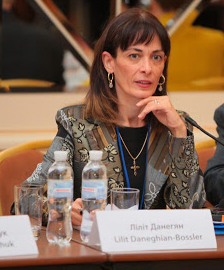 who expressed her gratitude for organizing the Twinning of Lawyers and noted that new technologies must be used always in secure and ethical way. COE has issued a number of Policy, recommendations, declarations, guidelines and other legal instruments on artificial intelligence and other technology tools. The most recent is Recommendation CM/Rec(2020)1 of the Committee of Ministers to member States on the human rights impacts of algorithmic systems including Guidelines on addressing the human rights impacts of algorithmic systems. Regarding human rights „states should ensure that they, as well as any private actors engaged to work with them or on their behalf, regularly and consultatively conduct human rights impact assessments prior to public procurement, during development, at regular milestones, and throughout their context-specific deployment in order to identify the risks of rights-adverse outcomes. Confidentiality considerations or trade secrets should not inhibit the implementation of effective human rights impact assessments.” Participants were
who expressed her gratitude for organizing the Twinning of Lawyers and noted that new technologies must be used always in secure and ethical way. COE has issued a number of Policy, recommendations, declarations, guidelines and other legal instruments on artificial intelligence and other technology tools. The most recent is Recommendation CM/Rec(2020)1 of the Committee of Ministers to member States on the human rights impacts of algorithmic systems including Guidelines on addressing the human rights impacts of algorithmic systems. Regarding human rights „states should ensure that they, as well as any private actors engaged to work with them or on their behalf, regularly and consultatively conduct human rights impact assessments prior to public procurement, during development, at regular milestones, and throughout their context-specific deployment in order to identify the risks of rights-adverse outcomes. Confidentiality considerations or trade secrets should not inhibit the implementation of effective human rights impact assessments.” Participants were 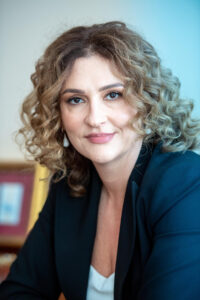 welcomed also by Olena Dzhaburiya, Deputy Dean of the Odessa Bar Council, who hosted all participants virtually on the beautiful city of Odessa expressing her hope to see each other in person next year. Jerzy Mosek, Dean of the Gdańsk Bar of Attorneys-at-Law,
welcomed also by Olena Dzhaburiya, Deputy Dean of the Odessa Bar Council, who hosted all participants virtually on the beautiful city of Odessa expressing her hope to see each other in person next year. Jerzy Mosek, Dean of the Gdańsk Bar of Attorneys-at-Law, 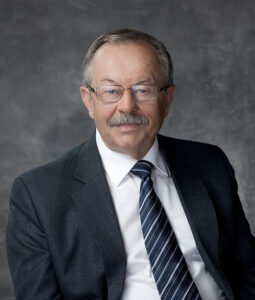 who was the host of the first twinning last year. Jerzy said that in today’s world, there is an ever-increasing flow of people, capital and information. We have to face the challenges and threats posed by globalization. Learning about the legal systems, organizational solutions and practices of individual countries becomes an element of our legal qualifications. This in itself justifies the need for lawyers from different countries to cooperate, not to mention the benefits of getting to know each other and getting rid of the existing prejudices, which are usually caused by the lack of reliable knowledge or information. The international cooperation of lawyers and the exchange of experiences related to it, is also one of the tools to improve the quality of our services to clients. After welcoming speeches Maxym Popov told a few words about Odessa and participants watched a short movie showing the beauty of the city.
who was the host of the first twinning last year. Jerzy said that in today’s world, there is an ever-increasing flow of people, capital and information. We have to face the challenges and threats posed by globalization. Learning about the legal systems, organizational solutions and practices of individual countries becomes an element of our legal qualifications. This in itself justifies the need for lawyers from different countries to cooperate, not to mention the benefits of getting to know each other and getting rid of the existing prejudices, which are usually caused by the lack of reliable knowledge or information. The international cooperation of lawyers and the exchange of experiences related to it, is also one of the tools to improve the quality of our services to clients. After welcoming speeches Maxym Popov told a few words about Odessa and participants watched a short movie showing the beauty of the city.
Then the first, scientific part of the Twinning of Lawyers devoted to eLawyering and eLaw Firm began.
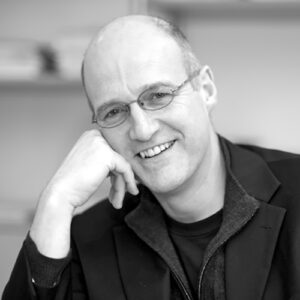
The first panel started with introductory remarks by Alex Tallon (Belgium), moderator of the panel, who said that The existence of virtual law offices and eLawyering is a reality. The bars and their organizations must also frame and encourage this. Adaptation to modern technologies by a professional group that is particularly dependent on the organization and cooperation of the members of a partnership is essential. To forbid some form of use of modern technologies on the basis of a conservative approach to certain basic values is pernicious. The virtual law office allows the efficient and smooth provision of services for the client and reduces costs, which is a competitive requirement. In the current European context, it is important for law firms not to miss the train of modernity. Alex made also very practical remarks on how the organization of a modern office looks like, what are benefits and disadvantages, he showed also deontological framework of the virtual law office and position of international organizations of lawyers on the issue. Vladimir Palamarciuc (Moldova) was talking on moldovan perspective of legal and practical developments on-line as well as on impact on exercise and functioning of the profession of lawyer. Artashes Khalatyan (Armenia) spoke, among others, on “Mullbery” electronic system of document flow operates in the Staff of the Chamber and Public Defender Office via which online circulation and supervision of assignments, as well as entering and exiting documents is secured. Alina Gorbatscheva from Brest (Belarus) presented developments of online tools by Republican Collegium of Advocates of Belarus including electronic system of (anonymous) questions from citizens and responses from lawyers. Altay Mustafayev (Azerbaijan) described well-advanced system in Azerbaijan including online database of all advocates, e-mailbox for each advocate, secure e-meetings, e-order (advocate appointment), e-training, e-appeals and legal aid mobile app. Sergiey Sizintsev (Kazakhstan) informed that since the beginning of spring 2020, all civil trials and almost all criminal trials have been conducted online in Kazakhstan.
The second panel on professional ethics in the context of eLawyering was conducted by Olena Dzhaburiya, who told that lawyers are increasingly using artificial intelligence (“AI”) and new forms of interaction both with colleagues and partners and with clients (virtual law firms) in their practice. While modern technology and the use of AI offer a number of benefits, they also raise complex issues affecting the professional ethics of lawyers. Thus, associations and Bars face a number of questions regarding the ethical rules in light of the use of AI by lawyers. Moreover, the options for answers can be very different: from the position that modern technologies do not affect professional ethics in any way to the position on the need for cardinal additions/changes to the existing rules of legal ethics. Ana Khurtsidze (Georgia) Nielson Sanchez-Stewart (Spain) informed that the Spanish Code of Conduct consists of a separate article (21) on use of modern technologies and on obligation to comply with ethical standards while using them. Professor Wojciech Wiewiórowski, European Data Protection Supervisor (EDPS)  thanks the AEA-EAL for inviting him to participate in the twinning underlining that he cooperates with AEA-EAL President for a longer time. Then he commented on the issue of protecting data while using the new technologies pointing out that lawyers process data not only during performing their professional duties, but also being employers and service providers.
thanks the AEA-EAL for inviting him to participate in the twinning underlining that he cooperates with AEA-EAL President for a longer time. Then he commented on the issue of protecting data while using the new technologies pointing out that lawyers process data not only during performing their professional duties, but also being employers and service providers.
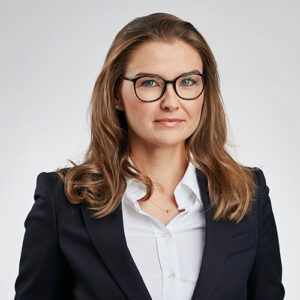
The third panel, devoted to sustainable growth in the context of use new technologies was chaired by Anna Wyrzykowska (Poland), First Vice-President of the International Association of Young Lawyers (AIJA). It has to be mentioned that AEA-EAL and AIJA signed in 2018 a Memorandum of Understanding on mutual cooperation. Anna told that the legal profession at the threshold of fundamental change change, because we all entered the era of innovation. As future of our planet is in danger , it demands an immediate action The COVID-19 pandemic accelerated digitalisation and the transition to a more sustainable way of living living. Lawyers are called upon to not only adapt but to lead positive change. Jean-Louis Collart (Switzerland) presented a number of opportunities offered by rapid technological change, but also noted that such change may have a disruptive impact. Claudio Visco (Italy) presented an opinion that lawyers are prepared for technological change and technology itself is a part of modernization of the profession, not a threat for its values and standards.
Conference presentations and speeches are available here.
Second part of the Twinning was chaires and moderated by Maria Ślązak, who invited a honorary guest – Özkan Yücel Dean of the Izmir Bar (Turkey) to take the floor.
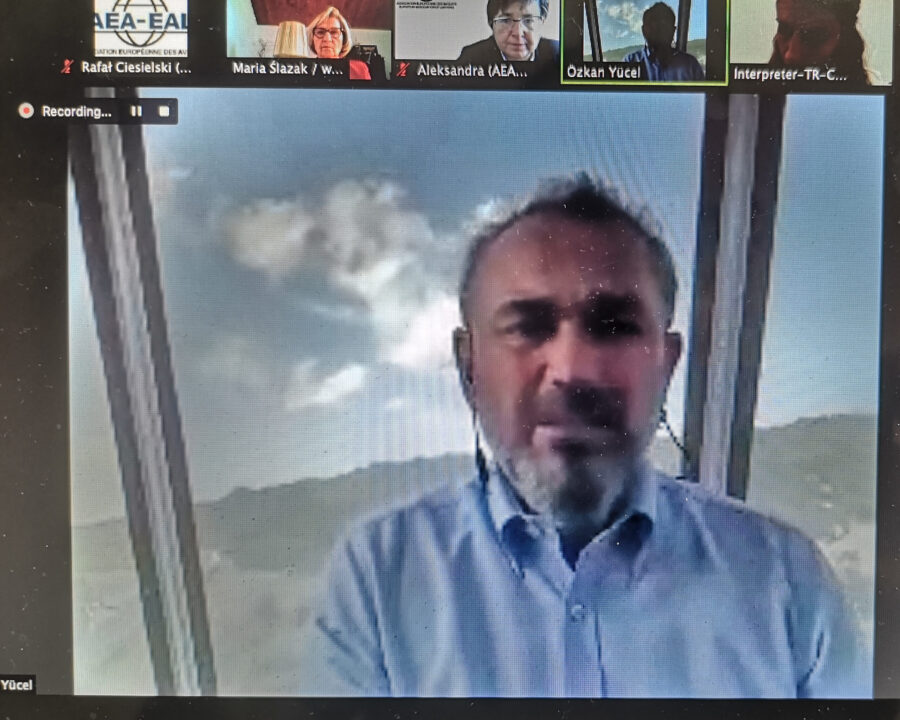
Özkan was speaking about serious threats for core values of legal profession and for rights of citizens to the fair trial and to legal assistance from independent lawyers.
After his speech Juan Nunez, past President of the AEA-EAL commemorated Ebru Timtik, Turkish lawyer who died in prison after 238 days of hunger strike. Participants honored Ebru’s memory with a standing ovation.
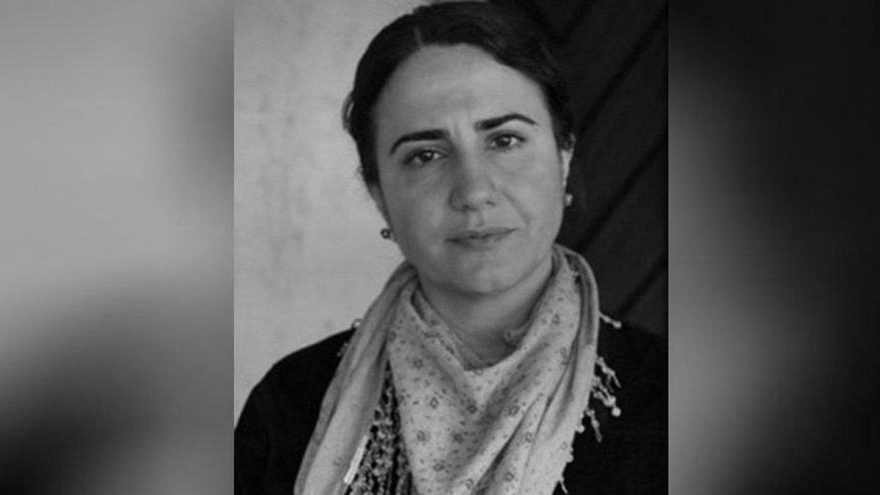
Then Maria invited representatives of Bars to take the floor and to share with participants information on recent developments in countries participating in the Twinning. Not all confirmed speakers could participate, but all information was delivered and bars’ representatives greeted each other expressing their hope and will to meet each other in person in Odessa next year.
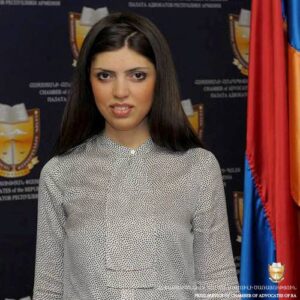 Mane Karpetyan, Deputy President of the Armenian Bar Association greeted all participants from Armenia and presented news on recent developments on legal profession and justice in Armenia. She told also on a heavy impact of Covid-19 pandemic on citizens’ life in her country.
Mane Karpetyan, Deputy President of the Armenian Bar Association greeted all participants from Armenia and presented news on recent developments on legal profession and justice in Armenia. She told also on a heavy impact of Covid-19 pandemic on citizens’ life in her country.
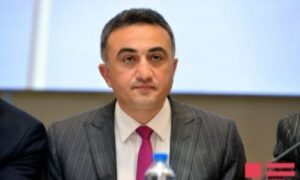
On behalf of Anar Baghirov, President of the Azerbaijan Bar Association, spoke Farhad Najafov, Director of the Office of the Bar, who passed greetings from Anar and expressed his sincere gratitude for organizing the Twinning of Lawyers for the second time.
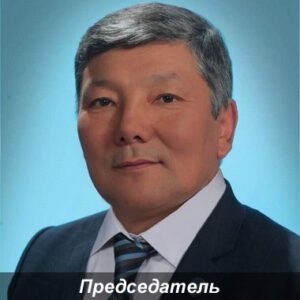
We were all missing Bilim Raiymkulov, Chairman of the Collegium of Advocates of the Republic of Kyrgyzstan , who due to rapid and serious illness could not join us on Saturday.
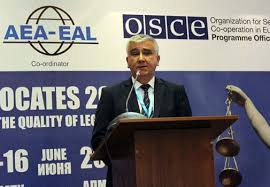
We were delighted to welcome Shukhurat Sadikov, Vice-Chairman of the Collegium of Advocates of the Republic of Uzbekistan, who participated for the third time in our events (2018 in Almaty and 2019 in Gdańsk). Shukhurat greeted all participants from Uzbekistan lawyers and passes his particular words of praise to Maria Ślązak for her standing activities of building bridges and connecting lawyers from various countries.
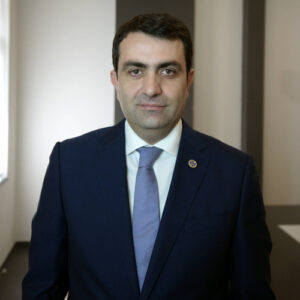
On behalf of our great friend and AEA-EAL Board member David Asatiani, President of the Georgian Bar Association, spoke Giorgi Tshekhani, Director of the Office of GBA.
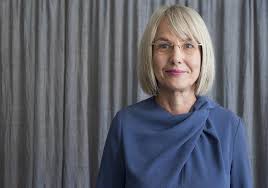
And last but not least, on behalf of the Gdańsk Bar of Attorneys-at-Law spoke Magdalena Witkowska, member of its Presidium and member of the AEA-EAL Board. It is worth to notice that Magdalena is also chair of the AEA-EAL human Rights Committee and chair of the same Committee within the polish National Bar of Attorneys-at-Law.
Organizers of the Twinning
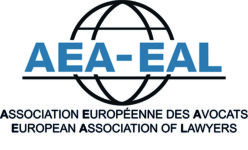
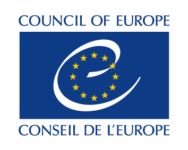


Second Twinning of Lawyers was financially and organizationally supported by the Council of Europe
AEA-EAL is committed to handling your Personal data in ccompalince with applicable data protection laws, including the General Data Protection Regulation ("GDPR"). If you have any questions, please contact us at privacy@aea-eal.eu. Our privacy policy and cookies policy are available here.
AEA-EAL aisbl - siege social/headquartes: Avenue Louise 235 - 1050 Bruxelles/Brussels - Belgique/Belgium KBO/BCE 0465.302.664
phone: +32 (0)2 467 34 24 e-mail: aea-eal@aea-eal.eu
Copyright 2023 AEA-EAL
